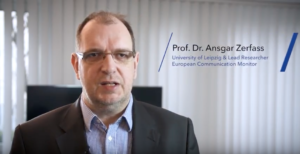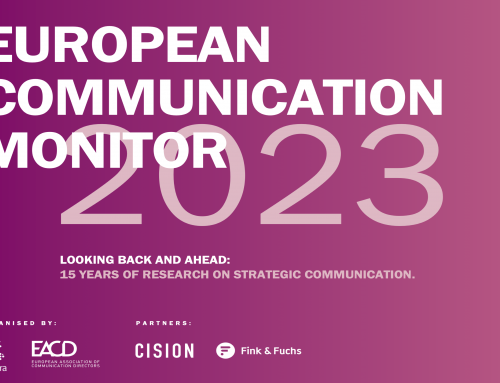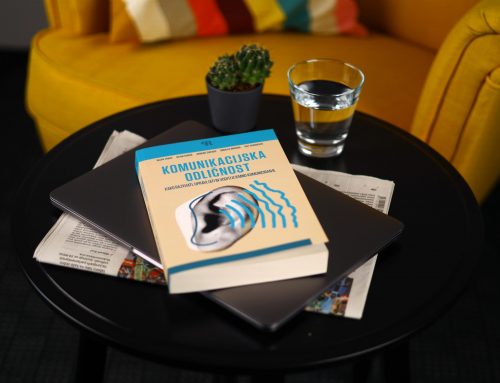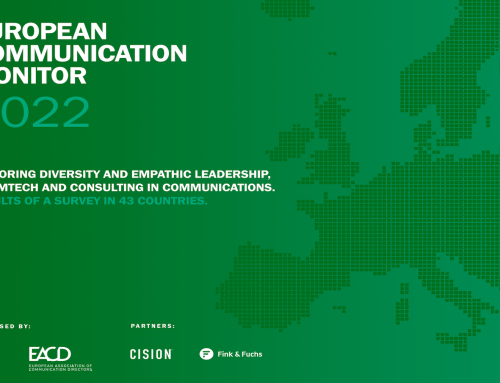The ComGap study, a spin-off project linked to the European Communication Monitor 2014, looks at how the public and PR professionals interpret leadership across 10 European countries. Specifically it examines the most appropriate channels through which leadership is communicated, the most important attributes of leadership, the most impactful behaviors of leadership and the most relevant use of social media.
The ComGap study was organized by the European Public Relations Education & Research Association and Ketchum. It offers insights based on the comparison of two large empirical studies. Based on thorough academic standards, a representative poll among the general public in 10 European countries was combined with a subsample of the ECM 2014 among 1,346 communication professionals in the same markets. The public poll samples the views of 4,054 citizens and is weighted for age and gender.
A comparison between how communication professionals and the general public interpret leadership has revealed that there is a consensus on core issues like the value of communication, the importance of trust and the power of face-to-face interaction. But there are also some differences or gaps. By utilizing this roadmap to authentic and credible positioning communicators can better understand the public’s preferences and therefore position leaders more effectively.
One of the key learnings is that the most important attribute of leadership is a strong alignment towards trustworthiness. Communication professionals tend to emphasize the value of innovation, management quality and financial strength whilst giving less weight than the public to the importance of customer service and environmental responsibility. The study also suggests that communicators could also place a greater emphasis on leading by example.

Statements from the initiators
 Commenting on how communication professionals and the general public view leadership, David Gallagher, senior partner and CEO of Ketchum Europe, said:
Commenting on how communication professionals and the general public view leadership, David Gallagher, senior partner and CEO of Ketchum Europe, said:
“To develop a reputation for outstanding leadership, you need to look beyond the generalities and examine precisely which variables matter most. This study reveals some interesting differences between what the public looks for in leaders as well as how and where they want to receive information, and the ways communicators work to build their image and share their point of view. If communicators want their leadership campaigns to work, they need to get real.”
Looking at the most important attributes of leadership, the study found that although there is strong alignment around trustworthiness, communication professionals tend to emphasize the value of innovation, management quality and financial strength whilst giving less weight than the public to the importance of customer service and environmental responsibility.
Looking at the behaviors associated with leadership, the study found that although there is a consensus on the importance of making tough decisions and admitting mistakes, communication professionals tend to underscore the value of long-term vision, achieving claims and being open and transparent, while potentially not spending enough time on issues around diversity and culture. The study suggests that communicators could also place a greater emphasis on leading by example.
The research also found that communication professionals generally still favor ‘traditional’ channels, like print interviews, personal appearances, websites and blogs, while the public favors more channels which allow for greater emotion and imagery such as TV, plus online and print advertising.
 Looking at the differences in how different European countries understand leadership, Ansgar Zerfass, coordinator of the international research team and professor at Leipzig University, commented:
Looking at the differences in how different European countries understand leadership, Ansgar Zerfass, coordinator of the international research team and professor at Leipzig University, commented:
“The French and Italians have a particular appetite for innovation, while Scandinavians seek leaders who are able to work with different personality styles. The Dutch favour inspirational rhetoric, Austrians admire leaders who take tough decisions, whilst Spanish and Germans want to see investment in CSR. International communicators are well advised to plan their campaigns accordingly.”
Browse the chart report
Click on the button to load the content from www.slideshare.net.
Load content








